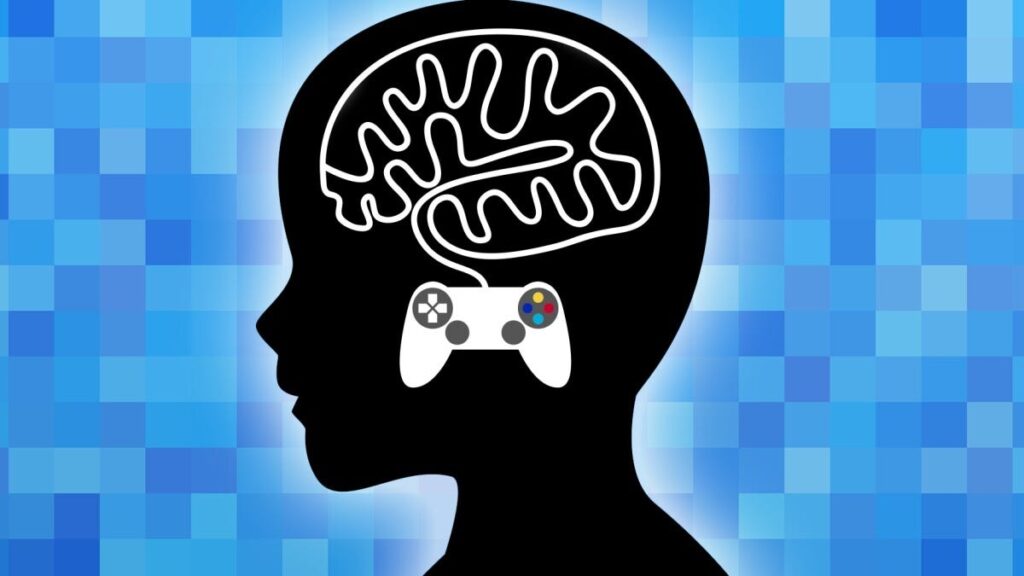Mental Health Matters: Essence and Imperative for a Balanced Life

Mental Health Matters: Unveiling the Profound Essence and Imperative for a Balanced Life No soul traverses the tapestry of existence in perpetual mental equipoise. The art lies in mastering the equilibrium of life’s multifaceted facets. Transitions in life necessitate a recalibration of this equilibrium. Nevertheless, protracted mental health tribulations exact a tangible toll on one’s well-being. Ripples of Mental Health Across Diverse Domains The impact of mental health extends across diverse domains, influencing various aspects of life: Occupational or academic endeavors Interpersonal bonds Quality of sleep Appetite dynamics Levels of vitality Cognitive acuity and decision-making prowess Physical well-being Overall life satisfaction and beyond… Mental well-being mirrors physical well-being in its pivotal import. It transcends the mere absence of mental afflictions, encompassing emotional, psychological, and social facets. It exerts influence over: One’s self-perception, worldview, and life evaluation Problem-solving acumen and resilience in the face of challenges Interpersonal relationship dynamics and societal contributions The pursuit and attainment of personal goals Proactive mental care mirrors its physical counterpart. Just as one nurtures bodily health before the onset of ailment, the same ethos applies to mental well-being. The Most Important Matters of Mental Health: Four Fundamental Dimensions Cogitation The cognitive lens through which one views the world wields considerable influence over mental health. Fluctuations in cognitive patterns often dovetail with shifts in mental well-being. Clarity of thought tends to accompany states of well-being, fostering a balanced and constructive outlook. Conversely, periods of distress can engender fixation on the negative, eclipsing the positive. Instances of Constructive Cognitions: I possess the resilience to navigate challenging junctures Elements in my life elicit genuine excitement! My social circle harbors genuine care for me I derive satisfaction from my current life trajectory My repertoire boasts noteworthy talents and interests I aspire to effect positive change Despite imperfections, I embody inherent goodness Gratitude permeates my outlook on life Instances of Detrimental Cognitions: Foreboding suggests imminent calamity Fortune consistently eludes me Overcoming challenges appears insurmountable My flaws loom insurmountably large A sense of mental unraveling pervades Self-deprecation prevails – unattractive and unintelligent Perceived as a pariah Life manifests as an unending ordeal! You might also be interested in… The Enigmatic Realm of PHP Mental Health Physiological Responses Bodily reactions encapsulate alterations in physiological functions: heart rate, respiration, digestion, cerebral neurotransmitters, hormones, and more. Perturbations in these bodily reactions often parallel shifts in mental well-being. Instances of Bodily Reactions: Muscle tension, aches, or headaches Oral dryness Gastrointestinal distress or queasiness Bowel irregularities or diarrhea Suppressed or heightened appetite Perspiration, flushes, or chills Thoracic discomfort, breathlessness, or respiratory difficulty Palpitations, racing heart, or irregular heartbeat Sensations of dizziness or lightheadedness Peripheral tingling in hands and/or feet Perception of detachment from the surroundings Exacerbation of pre-existing health issues (e.g., dermatological, gastrointestinal, migraines, chronic pain, etc.) Emotional Vistas A substantial component of emotions resides in the realm of feelings. Emotions can be pleasant, unpleasant, or amalgams of conflicting sentiments. Transformations in emotions invariably accompany alterations in mental well-being. Instances of Emotional Spectra: Elation or jubilation Satisfaction Tranquility Enthusiasm Amorous sentiments Confusion Monotony Relief Irritability or wrath Frustration Anxiety or trepidation Melancholy or despondency Embarrassment Despair Disgust Behavioral Dynamics Behaviors encompass one’s actions and responses to the ambient milieu. Some behaviors prove salutary, while others harbor potential harm. Shifts in behavior typically align with shifts in mental well-being. Instances of Constructive Behaviors: Systematically addressing challenges, step by step Seeking solace and understanding from friends or family Devoting time to spiritual pursuits Indulging in relaxation activities, be it a bath or yoga Engaging in physical exercise Participating in hobbies or leisurely pursuits Instances of Deleterious Behaviors: Retreating into isolation, distancing from loved ones Resorting to substances for emotional palliation Avoidance of distressing stimuli Excessive or inadequate food intake or purging behaviors Expressing hostility towards others, verbally or physically Excessive reliance on or clinging to loved ones Mental well-being, delineated by cognitive, emotional, behavioral, and physiological patterns, remains an interconnected tapestry. Each dimension exerts reciprocal influence over the others. Illustratively: Four Mental Health Matters/Dimensions Cognition Job well done Traffic-induced disdain Physiological Responses Muscles at ease Heart in a frenetic ballet Behavioral Dynamics Rewarding self with a cinematic sojourn Fists pounding in frustration Emotional Vistas Radiant happiness Simmering anger Interrelated Inquiries: Why mental Health Matters? In the realm of well-being, mental health emerges as a paramount force, intricately weaving its influence through the fabric of our cognitive, emotional, and behavioral landscapes. Far beyond the absence of mental afflictions, it unfolds as a multifaceted tapestry, interwoven with emotional richness, psychological resilience, and social prosperity. This article delves into the profound essence encapsulated by the term “mental health matters,” exploring its depth, resonance, and the imperative it holds in the pursuit of a fulfilling and balanced life. What is Mental Health Matters? The essence of “mental health matters” reverberates with the intricate symphony of emotional, psychological, and social flourishing within the journey of an individual’s life. It not only acknowledges but emphasizes the conscious prioritization of mental well-being in parallel with its physical counterpart. This nuanced verbiage accentuates the dynamic interplay among cognitions, emotions, conduct, and physiological reactions. It spotlights their cumulative impact on the holistic state of well-being, fostering a proactive ethos that advocates for resilience, positive ideation, and constructive behavioral paradigms. Why Does Mental Health Matters? The significance of mental health emanates from its profound influence over the perceptual and navigational realms of individuals within the cosmic fabric of existence. Encompassing emotional, psychological, and social well-being, it shapes one’s adeptness in grappling with adversities, fostering connections, and contributing to communal spheres. A linchpin to the realization of personal aspirations, perpetuation of global life contentment, and the curation of a judicious and constructive worldview, mental well-being stands pivotal. Analogous to the precedence accorded to physical health as a preemptive measure against affliction, the assiduous care of mental well-being becomes indispensable for a life marked by resilience and satiety. A Proactive Approach for a Balanced Life In conclusion, the interrelated inquiries – “Why mental health matters?” and “What are mental
PHP Mental Health Insights: Connections Wellness Group

What is PHP Mental Health Deciphering the Enigmatic Realm of PHP At the intersection of intricacy and linguistic diversity lies the enigmatic realm of the Partial Hospitalization Program (PHP). This exceptional program encapsulates a dynamic approach to outpatient care, defying conventional paradigms. In the hallowed halls of PHP treatment, a meticulously orchestrated choreography unfolds. Five days a week, participants converge for four-hour sessions that encapsulate a tapestry of group therapy, astute medication management, and a modicum of familial engagement. It commands a substantial commitment, demanding a rigorous 20-hour weekly investment in therapy and pharmacological oversight. Yet, it’s imperative to clarify that a PHP is far removed from the confines of a traditional hospital stay. Enter the sphere of Connections Wellness Group, where our Texas-based Partial Hospitalization Program extends a compassionate hand to the denizens of the bustling Dallas-Fort Worth metropolitan expanse. For further enlightenment or to embark on your journey to recovery, kindly reach out to us at 940.360.4245. Demystifying PHP: A Profound Exploration As previously elucidated, the Partial Hospitalization Program serves as an epitome of intensive outpatient therapy. The appellation ‘hospitalization’ finds its raison d’être in the constant vigilance of a psychiatrist during the program’s duration. PHP therapy, an intricate mosaic, may encompass judicious medication management and an array of evidence-based therapeutic modalities. The patients at this echelon convene with a healthcare provider, be it a psychiatrist or a psychiatric nurse practitioner, twice weekly for the meticulous orchestration of their pharmacological regimen. While resolutely intensive, the PHP is often likened to a “mid-level” of care. It stands as a towering bastion between the traditional individual therapeutic session, a mere weekly rendezvous spanning 50 minutes, and the imposing specters of inpatient hospitalization or residential treatment sanctuaries. Patients of diverse age strata, ranging from children to adolescents and adults, may partake in the profound offerings of PHP. It finds its most poignant application in addressing an array of challenges, such as: The labyrinthine realm of mental health conditions The daunting and intricate landscape of eating disorders The intricate struggle against substance use disorders The relentless battle against dual diagnosis, where the titanic forces of mental health and substance use disorders converge in a tumultuous union In the aftermath of a PHP sojourn, many individuals commence their descent into less intensive tiers of outpatient care. Navigating the Abyss: Determining the Need for PHP The prerequisites for embarking on a Partial Hospitalization Program may exhibit variance, subject to individual idiosyncrasies. However, a constellation of common symptoms may serve as beacons, indicating the necessity for a more intensive level of care. Among these telltale signs, one may find: The presence of haunting thoughts of self-harm, suicide, or even homicidal ideation The relentless grip of severe depression, incapacitating the individual’s daily functioning A recurring onslaught of debilitating panic attacks The harrowing struggle against substance addiction The intricate entanglement in the throes of eating disorder. It’s worth acknowledging that at times, the severity of these symptoms may mandate the transition to inpatient care or, conversely, may yield to the benevolent embrace of individual therapy and psychiatric intervention. A PHP frequently emerges as the recommended course of action following a stint in an inpatient facility. This transition serves as a vital “step-down” in the continuum of care, much akin to how an Intensive Outpatient Program (IOP) often follows a successful PHP journey. If an individual’s therapeutic efforts, entailing individual counseling and medication management, yield limited progress, or if their symptoms exacerbate, the imperative of seeking a higher tier of care, such as a PHP, becomes apparent. Should you harbor concerns regarding the requisite intensity of care, we implore you to reach out to a facility to undergo a comprehensive intake assessment. These assessments are meticulously conducted by licensed professionals and culminate in the astute recommendation of the most apropos level of care. To Get More Knowledge about Health and Wellness Click Here A Glimpse into the Enigmatic World of PHP: What Lies Ahead In the domain of Partial Hospitalization Programs, the structure of daily programming assumes paramount significance. Typically, it encompasses two hours of process-oriented group sessions and a corresponding two-hour allocation for skill-building and psychoeducation sessions. The duration of a patient’s sojourn in a PHP may oscillate between 10 to 30 days, contingent upon a panoply of factors, including the nature of their afflictions, progress vis-à-vis treatment objectives, alterations in pharmacological interventions, and the spectrum of insurance coverage. The intake process, though subject to subtle variations, generally includes the following Facets: A meticulous intake assessment The completion of requisite admission documentation Ongoing communication with the billing department Consultation with the nursing staff A comprehensive bio psychosocial evaluation Patients should, within the first 24 hours of enrollment, undergo evaluation by a healthcare provider, be it a psychiatrist or psychiatric nurse practitioner, and partake in group sessions. Although some programs may integrate individual therapy sessions within the regimen, group therapy overwhelmingly dominates. Seasoned professionals at the helm of therapy groups assume the mantle of goal-setting, the dissection of daily challenges, and the dissemination of coping strategies tailored to alleviate and manage symptoms. The PHP level often presides over pharmacological adjustments, as patients convene with their healthcare provider twice weekly for vigilant monitoring, ensuring timely mitigation of side effects and appropriate modifications. Weekly rendezvous, uniting the therapy, nursing, and psychiatric cadre, form the bedrock of the treatment team’s collaborative efforts. These gatherings ensure cohesive collaboration among care professionals. They pool their expertise for the welfare of each patient. Frequently, the successful culmination of a PHP journey opens the path for the commencement of an Intensive Outpatient Program (IOP). This ensures a continuum of care that resonates with the individual’s evolving needs.
7 Innovative Mental Health Games | Exercises & Resources

7 Innovative Mental Health Games | Exercises& Resources Amplify the allure of mental health education for yourself and your collaborators. Grown-ups engage in hearty laughter in each other’s company. Activities related to mental well-being, such as diversions, impart an enjoyable facet to both learning and teaching. The domain of mental health might exude an aura of gravity, a stance well-justified. However, the process of enlightenment need not bear the weight of intimidation or inundation. Activities tethered to mental health extend a helping hand to comprehend, instruct, and uplift one’s holistic well-being. Through a deeper comprehension of mental health and the cultivation of favorable mechanisms for coping, we become the architects of a brighter, healthier destiny, both for ourselves and the collective. Rendering mental health in an accessible and enjoyable format serves as a salient strategy for dismantling the stigma surrounding it, and in so doing, it endows individuals with the ability to nurture their mental well-being. Herein, we unveil 11 innovative pursuits linked to mental health to serve as a compass for you, your clienteles, and your institution, thus establishing precedence for well-being. Organize a Mental Health Quizzing Extravaganza The recreation of coping skills takes center stage in this game, akin to the legendary Jeopardy! mental health quiz show, offering stimuli for the discussion of coping skills. The fitting response, phrased in the form of a query, is: “What does mental health encapsulate?” Jeopardy! is an iconic quiz show beloved by audiences spanning the globe for countless decades. Contestants select categories and furnish solutions in the format of questions. This game show format, aside from being entertaining, emerges as a potent instrument for propagating awareness about mental health. Leveraging the quiz show format as a medium for mental health instruction manifests as a superb approach to captivate and educate individuals regarding diverse facets of mental health. This resource is readily accessible to educational institutions, workplaces, and associations concentrated on mental health. Jeopardy! games, or similar quiz-style competitions, engender dynamic engagement and establish an impression of achievement, thus facilitating better assimilation of information and notions tied to mental health. For those who may perceive topics connected to mental health as formidable or daunting, a game-based approach offers a level of comfort that fosters dialog on delicate subjects and prompts the sharing of personal experiences. Numerous templates and alternatives are accessible online, including tools bestowed by the creators of Jeopardy! itself. Alternatively, one can exploit a PowerPoint template to fashion or tailor-make their quiz show, rendering the voyage of comprehending mental health both more engaging and enjoyable. In a parallel vein, should your purview encompass clients or groups with a more nuanced comprehension of mental health, it is worth exploring our CBT Coping Skills Game Show (CBT) Coping Skills Game Show. The themes span mindfulness, emotions, and the cultivation of coping skills. The more advanced queries venture into the intricacies of coping and mental health and is best rank in mental health games. Access the CBT Coping Skills Game Show from our store. Partake in Mental Health Strategy Games FEELOPOLY, a game pertinent to mental health, extends an invaluable resource for families, educational institutions, and small assemblages. Games in the realm of mental health, like FEELOPOLY, emerge as potent vehicles for disseminating understanding about mental health and fostering enlightenment. They skillfully shroud profound issues in the guise of light-hearted inquiries. Take, for instance, FEELOPOLY, where participants navigate their tokens across the gaming board, responding to inquiries related to emotions and mental health. This configuration introduces an element of fun and ease into the process of imbibing knowledge about mental health. Mental health strategy games concurrently promote social interactions and communication, essential elements of mental health pedagogy. In circumstances where time is a scarce commodity, our extensive collection of mental health board games is poised to come to your aid. This repository encompasses our most esteemed mental health board games, available as an all-inclusive bundle that encompasses games, workbooks, and sundry mental health activities. FEELOPOLY represents a vehicle for recognition, validation, and the management of emotions. The CBT Coping Skills Game Show, inspired by Jeopardy!, traverses skills and concepts rooted in cognitive-behavioral therapy (CBT). It synergizes seamlessly with audiences already versed in the sphere of mental health, or it can be harnessed as a pedagogic instrument to elucidate a broader spectrum of concepts. The Grounding Stones Activity set constitutes a comprehensive mental health pursuit that is poised for deployment, concentrating on the instruction of mindfulness and grounding skills. The Feelings Jenga Stickers epitomize a novel stratagem for enriching the lexicon of emotions and injecting an element of amusement into the concept. For the frugal-minded, our Giant Store Bundle furnishes an economical alternative. It assembles all the games outlined above, alongside numerous supplementary activities and workbooks that buttress the ideologies of CBT, self-care, mindfulness, and emotions, all at a substantial discount. Explore the offerings in our mental health bundle. Mental health games extend particularly meaningful dividends to individuals who may perceive themselves as isolated or solitary in their battles with mental health issues. Games serve as a platform for individuals to rehearse skills relating to emotional regulation and empathy. Mental health board games, like FEELOPOLY, also serve as a valuable asset for professionals within the realm of mental health, such as counselors and therapists. These games provide a structured mechanism for involving clients in mental health education and discourse, a facet that augments the therapeutic process. Peruse the repository of mental health activities tailored to educational institutions, corporate events, therapy collectives, and a range of other contexts. Coordinate a Mental Health Symposium I have had the privilege of contributing to the orchestration of a unique “sanctuary of mental well-being” on behalf of my state’s mental health department. This endeavor garnered substantial acclaim! We arranged for a dedicated space within a state convention, a precinct wherein professionals could acquaint themselves with novel mindfulness
